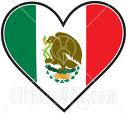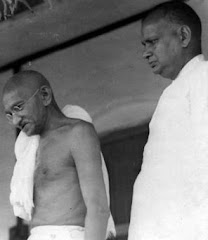
“If the Olive Trees knew the hands that planted them, Their Oil would become Tears.”
― Mahmoud Darwish
As the olive harvesting season nears completion our team felt there were a lot of things worth sharing from our days immersed in the olive picking. We didn't happen to witness any of the violent settler attacks that took place this year. They happened but not where we were picking. Were we in the wrong place or were we the reason it did not become a problem area. Who knows? Sometimes the less dramatic stories need to be shared and it’s precisely those that we’ll try to relate in this blog entry as seen through our eyes.
Burin – amidst the settlements
The olive harvest this year started in early October and timed perfectly with our team’s arrival in Huwwara. Neighboring Burin was the first village where both picking and our work as team started.
Because of its location between mountains topped by two Israeli settlements Yizhar(with the Yitzar outpost) and Bracha, Burin falls completely into Area C of the West Bank and is under full Israeli control. Ytzhar is at the forefront of the so called "price tag" policy or campaign which calls for attacks against Palestinians in retaliation for actions of the Israeli government against West Bank settlements (for more information please visit: http://www.haaretz.com/news/diplomacy-defense/yitzhar-extremists-all-settlers-must-fight-construction-freeze-1.287512)

Yitzhar settlement
Those who own olive grove land must receive “prior coordination” from the Israeli Civil Administration (a part of the military administration) in order to be able to tend to their land. Many Palestinians cannot prove land ownership as customary traditions saw land being passed down from one generation to the next without the necessity for formal land registration. Others refuse to apply for “permission”, or if it is given, will only pick on days without it. We accompanied some families who had chosen to pick without permission from the Israeli army. The first day we picked a hundred meters away from Bracha. We saw the olive trees bordering the settlement that had been set on fire earlier in June this year along with about 1500 other trees were reported to have been burned in a single settler’s attack. The total number of trees reported to be destroyed in Burin this year goes up to 4000 and this number seems to be only going up every year.
(http://www.poica.org/editor/case_studies/view.php?recordID=3412). (NOTE: We are unable to verify the accuracy of this data. 4000 seems extremely high given the data in the UN report of our previous blog.)  The second day we accompanied another family who chose to harvest without permission from the army. Despite our visibility from and proximity to the settlement of Yitzar, we could not help but be awed by the fact that these were obviously days devoid of fear. Farmers sang songs and joked around with internationals under the strong sun. This seemed as much of an act of resistance as picking without permission.
The second day we accompanied another family who chose to harvest without permission from the army. Despite our visibility from and proximity to the settlement of Yitzar, we could not help but be awed by the fact that these were obviously days devoid of fear. Farmers sang songs and joked around with internationals under the strong sun. This seemed as much of an act of resistance as picking without permission.
After a couple of days of picking with different families in Burin, we started to see familiar faces and in turn villagers also started recognizing us. While waiting at the village’s center for our work assignmetn, we were the object of unexpected gestures of kindness. A man selling flowers once approached us and merely handed a flower without saying a word, then went back to his morning duties. The small falafel shop sent a kid carrying some tasty sandwich for our second breakfast of the day. It felt good to be connected to these incredibly nice people and receiving these small but deeply appreciated tokens.


 The second day we accompanied another family who chose to harvest without permission from the army. Despite our visibility from and proximity to the settlement of Yitzar, we could not help but be awed by the fact that these were obviously days devoid of fear. Farmers sang songs and joked around with internationals under the strong sun. This seemed as much of an act of resistance as picking without permission.
The second day we accompanied another family who chose to harvest without permission from the army. Despite our visibility from and proximity to the settlement of Yitzar, we could not help but be awed by the fact that these were obviously days devoid of fear. Farmers sang songs and joked around with internationals under the strong sun. This seemed as much of an act of resistance as picking without permission.







No comments:
Post a Comment